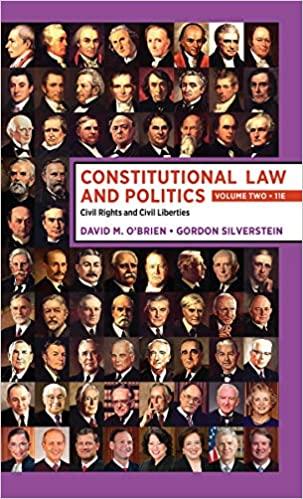Question
review this paper Fraud & Abuse Laws There are five fundamental laws to remember regarding fraud and abuse. The top five laws that apply to
review this paper
Fraud & Abuse Laws
There are five fundamental laws to remember regarding fraud and abuse. The top five laws that apply to physicians are the False Claims Act (FCA), the Anti-Kickback Statute (AKS), the Physician Self-Referral Law (Stark law), the Exclusion Authorities, and the Civil Monetary Penalties Law (CMPL). The Department of Health & Human Services Office of Inspector General (OIG) is one of the agencies charged with enforcing these laws. All health providers must understand these laws to ensure they are not violating them. Breaking the law could result in losing your medical license from your State medical board or even jail time.
False Claims
Nicole Kasimatis, MSW, a Clinical Social Worker; the owner of a Quincy-based mental health and addiction treatment service, was sentenced to three to four years in state prison after she pleaded guilty to defrauding public and private insurance companies, including the state's Medicaid program. In November of 2021, she was arrested on charges of defrauding MassHealth for nearly $500,000. She billed for substance use disorder and other mental health services she did not perform.
Judge Peter Krupp was sentenced to three to four years in state prison. He gave her three years of probation with the conditions that she pays restitution, cannot work for a MassHealth provider, and not bill MassHealth for services. She must also stay in Massachusetts, forfeit any passports, and stay away from and have no contact with named witnesses. After that sentence, the judge added two to three more years in state prison to run concurrently with her three- to four-year prison sentence from previous fraud charges for which she was already serving probation.
False Claims Act
Several laws fall under the Office of the Inspector General (OIG). They are in place to ensure that health care professionals work ethically, provide high-quality patient medical care, and submit proper claims.
The civil FCA protects the Government from being overcharged or sold shoddy goods or services. Under the civil FCA, each item or service billed to Medicare or Medicaid counts as a claim. It is illegal to submit claims for payment to Medicare or Medicaid that you know or should know are false or fraudulent. Filing false claims may result in fines of up to three times the program's loss, plus $11,000 per claim.
Anti-Kickback Statute
The AKS is a criminal law that prohibits the willful payment of "remuneration" involving any item or service payable by the Federal health care programs (e.g., drugs, supplies, or health care services for Medicare or Medicaid patients). Remuneration includes anything of value and can take many forms besides cash, such as free rent, expensive hotel stays and meals, and excessive compensation for medical directorships or consultancies.
Physician Self-Referral Law. The Physician Self-Referral Law, commonly referred to as the Stark law, prohibits physicians from referring patients to "designated health services" payable by Medicare or Medicaid from entities with which the physician or an immediate family member has a financial relationship unless an exception applies. Financial relationships include both ownership/investment interests and compensation arrangements
Exclusion Statute law. Under the Exclusion Statute law, OIG is legally required to exclude from participation in all Federal health care programs individuals and entities convicted of the following types of criminal offenses:
- Medicare or Medicaid fraud and other crimes related to the delivery of items or services under Medicare or Medicaid.
- Patient abuse or neglect.
- Felony convictions for other health-care-related fraud, theft, or other financial misconduct.
- Felony convictions for unlawful manufacture, distribution, prescription, or dispensing controlled substances
Conclusion
Last but not least, under Civil Monetary Penalties Law, OIG may seek civil monetary penalties and sometimes exclusion for various conduct and is authorized to seek different penalties and assessments based on the violation at issue. Penalties range from $10,000 to $50,000 per violation. In this case, Nicole Kasimatis was charged with two counts of Medicaid false claims, two counts of theft over $1200, filing a false healthcare claim, and a common notorious thief claim. She will be serving about seven years in prison. Was her sentence enough for what she has done, I believe, but she should be ordered back to pay all that money back, in my opinion! She misused the taxpayer's money and violated the patient's right; I believe she should return every cent of the money.References
Fraud & Abuse Laws - Office of Inspector General. https://oig.hhs.gov/compliance/physician-education/fraud-abuse-laws/
Quincy woman charged with Medicaid fraud 4 times pleads guilty. https://www.patriotledger.com/story/news/2022/07/17/quincy-woman-kasimatis-charged-medicaid-fraud-4-times-pleads-guilty/10072423002/
Step by Step Solution
There are 3 Steps involved in it
Step: 1

Get Instant Access to Expert-Tailored Solutions
See step-by-step solutions with expert insights and AI powered tools for academic success
Step: 2

Step: 3

Ace Your Homework with AI
Get the answers you need in no time with our AI-driven, step-by-step assistance
Get Started


